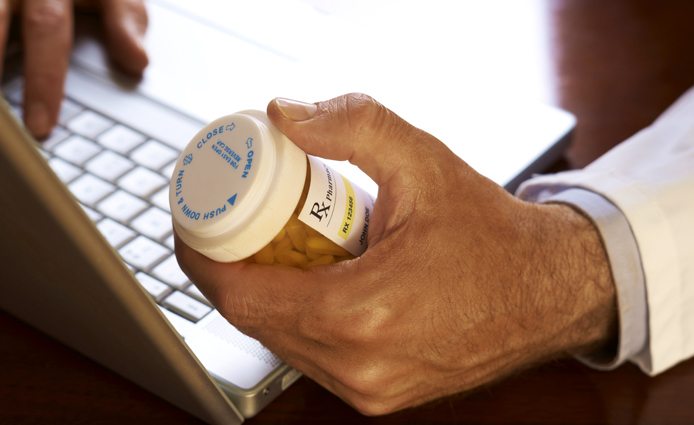
Misinformation on the Internet is a serious problem, especially when it comes to counterfeit drug sellers who use websites, spam, and social media to entice consumers. Unfortunately, many Internet users take the bait, and the results can be deadly. Below are ways rogue online drug sellers are misinforming and deceiving consumers, and what is being done by CSIP and our partners to halt their efforts:
Social Media
A recent News 4 story revealed that counterfeiters are on sites like Instagram and Twitter, actively searching for customers. They may pose as people who are trying to sell extra drugs they can’t use. Consumers should be aware that these are the same people who are making those drugs in unsafe conditions. Recently, Operation Pangea VII focused on social media, and successfully eliminated thousands of social media ads. In addition, CSIP supported consumer education campaigns for the FDA’s BeSafeRX and the Partnership for Drugfree America’s Medicine Abuse Project, which yielded a total of 41,265,758 social media impressions.
Spam
Websites that sell counterfeit drugs have historically turned to spam and other shady advertising practices to get the word out about their medications. According to NPR, spammers, who are typically independent contractors that are paid commission based on sales, use email and search engines engine advertisements to entice consumers. Our members, including Google, Microsoft, Yahoo, and Facebook, have taken steps to curtail these criminals by refusing ads from them.
Websites
Unscrupulous sites have used deceptive names (such as www.walgreens-store.com and www.c-v-s-pharmacy.com) that are very close to the names of legitimate websites, but are just different enough to mislead consumers. Similarly, the ad prices on these website are very low, and the “too good to be true” costs lure consumers who are trying to save money. Due to the actions of CSIP partners and government agencies, thousands of these sites have been shut down. In addition, through its partnership with CSIP, Rightside, formerly eNom, has suspended thousands of domains operating illegally and flagged them to authorities.
At CSIP, our goal is the educate consumers about ways illegitimate online pharmacies are targeting Americans so they don’t fall victim to these unscrupulous criminals. Remember: before you buy prescription drugs online, please check our Website using CSIP partner LegitScript’s Pharmacy Verification Tool. For additional details, facts, and figures on how CSIP and its members are continuing to work with partners, government agencies, and law enforcement to combat illegitimate online pharmacies, please view our Results page.
####
The Center for Safe Internet Pharmacies (CSIP) and our 13 member companies have the shared goal of helping address the growing problem of consumer access to illegitimate pharmaceutical products on the Internet. Continue to read this blog for updates on CSIP’s education, enforcement and information-sharing efforts.

